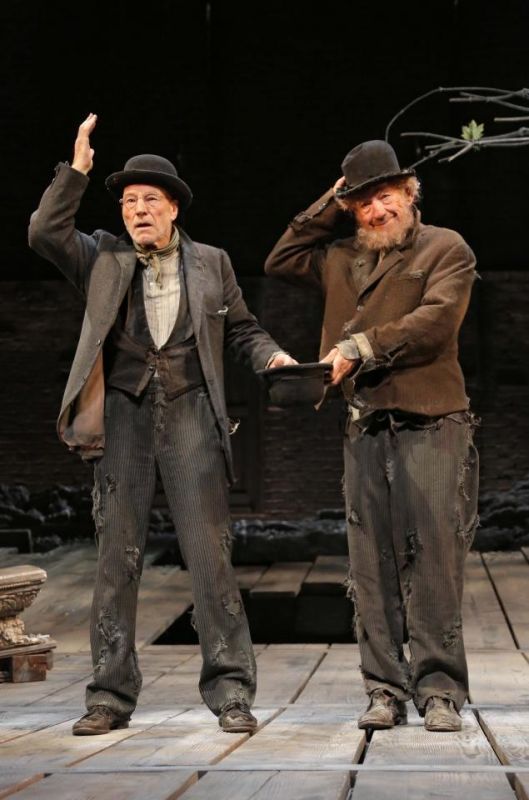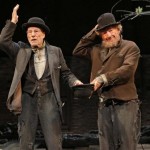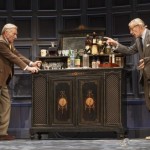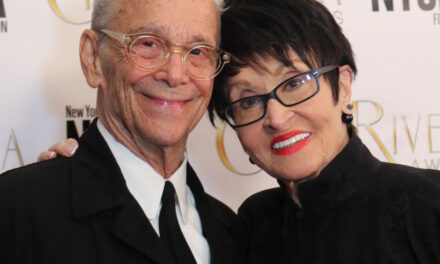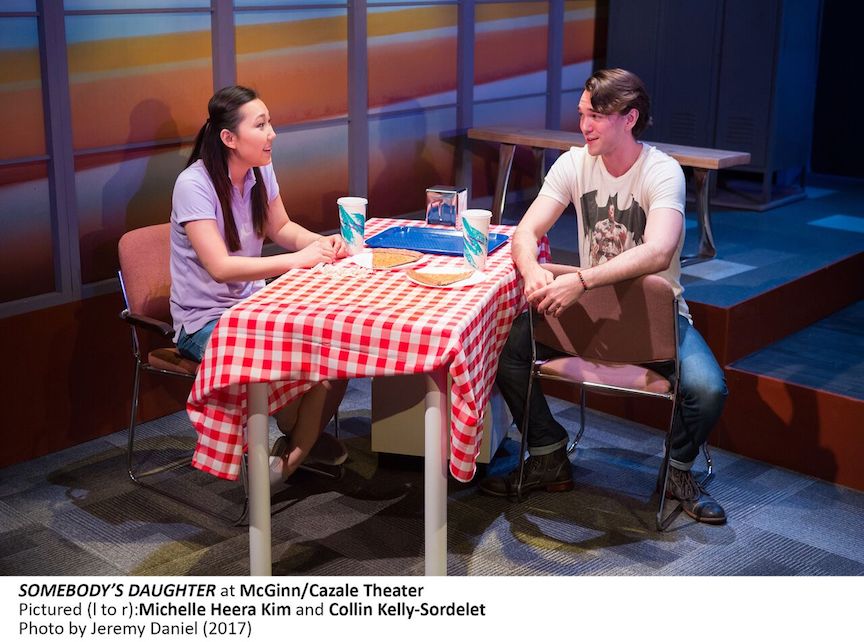by Sandi Durell & JK Clarke
This is a Broadway season filled with perfect pairings! From Mark Rylance in the Globe’s “Twelfth Night/Richard III” to Patrick Stewart and Ian McKellen in Beckett’s zany absurb “Waiting for Godot” and Pinter’s tour de force “No Man’s Land” at the Cort Theatre.
In Samuel Beckett’s Waiting for Godot, two old homeless friends regale audiences with their Abbott & Costello-esque laugh-a-minute routines as Estragon (Patrick Stewart) and Vladimir (Ian McKellen) while they await the arrival of Godot (GOD-Oh – as pronounced by Stewart), their salvation. These two stage and screen icons (also long time real life friends) are sharing carrots and turnips for lack of anything else that is eatable in the sparse countryside where they have been surviving (set/costume design by Stephen Brimson Lewis on a raked stage). Why it’s been 50 years of living the hobo life!
Estragon is the philosopher of the two, bringing information and a light touch to the world – “aren’t we happy?” to Vladimir’s retort “what do we do now that we’re happy?” Poor Vladimir – his smelly feet do hurt in those too small boots. Time goes by as they engage in various topics of conversation—from religion to erections to urinating.
To say they are spry and vivacious is putting it lightly as they provide vaudevillian style entertainment in a hat switching routine and song and dance that bring more chuckles to the already joyful audience.
The mischievous two-some are joined by the rolly-polly loudmouthed, high pitched southern twanger Pozzo (Shuler Hensley) and his slave boy Lucky (Billy Crudup) who is weighted down carrying Pozzo’s belongings as he is led around on a rope to do his bidding. Lucky doesn’t have much to say until a long monologue in Act II.
And all the while, they wait, occasionally getting messages from a young boy (Colin Critchley or Aiden Gemme (alternates) whether Godot will arrive or not.
Life is here, now, and filled with absurdities – and the time passes. Two Sirs having the time of their lives!
(by Sandi Durell)
* * * * * * *
Two Sirs, With Love: No Man’s Land
by: JK Clarke
Nostalgia comes in any variety of forms. For some, it is a reflection on things past, good or bad; for others, it is regret over missed opportunities and pathways not chosen; and for some it is a vague desire for things to return to “the way they were,” regardless of how accurate the memory may be. For the four men in Harold Pinter’s No Man’s Land, now playing at the Cort, it seems to be all of these things. But even more importantly, all seem completely at sea in the present. Like Waiting for Godot, with which it is playing in repertory, it is a play about people mired in ambiguity.
No Man’s Land’s exceptional cast is anchored by Sir Patrick Stewart as Hirst, a wealthy aristocratic alcoholic literary scion in his 60s; and Spooner, played by Sir Ian McKellen, a down and out alcoholic critic and poet, whom Hirst has just brought home from a Hempstead pub. (If this is not the first time two Knights of the British Empire have appeared on stage together, it certainly is one of few). The exact nature of their relationship is unknown. They may have known one another at university (at some point they certainly pretend to) or quite possibly their relationship may be homosexual. Then again, they may be tired and lonely drunks who don’t want to go home alone. In any case, the evening devolves into circular discussions, petty arguments and drunken confusion. They are joined late in the night by two younger men: Hirst’s personal secretary, Foster (a cockney sounding Billy Crudup) and servant/bodyguard Briggs (Shuler Hensley). The two younger men perceive Spooner as a threat, but of what variety is unclear. He is a pathetic old man, but they don’t want any intruders. Perhaps they believe they stand to inherit Hirst’s estate, but that is also unclear. The discussions re-start the next morning after everyone has passed out. This time, however, Hirst pretends, or believes, Spooner is an old university chum whom he had cuckolded. He tells Spooner of his “wife’s” (for Spooner is playing along) infidelities with relish and Spooner merely nods. There is such an overtone of delusion that one wonders if, perhaps, Hirst is in the throes of dementia. Such is the essence of the play: these four men, particularly the two older ones, lost in an unchanging world of uncertainty and isolation.
What makes the production stand out are Stewart and McKellen’s absolutely superb performances. Stewart, as the conservative old stoic, reels, stumbles and loses his train of thought so convincingly that one wonders if it’s real Scotch in the bottle from which he can’t stop drinking. And McKellen’s sad old poet, dressed in a beat-up, light blue pinstripe suit and wearing dirty white tennis shoes, moves deftly on the stage, like a dancer, albeit a slow-moving inebriated one. He lopes to the bar rocked forward on the balls of his feet, evoking Jacques Tati. When he moves his hands, they flutter delicately and hesitantly across his body, or down his lapel, stopping when Stewart utters something particularly poignant or biting, in such a way that we can feel his anxiety.
No Man’s Land seems to reside in the belief that it is better to be miserable with others than to be miserable alone. Whatever the case may be, it is certainly to the audience’s benefit that these two men have come together.
No Man’s Land. Through March 2 (in repertory with Waiting For Godot) at the Cort Theater, 138 West 48th Street (between Sixth and Seventh Avenues). www.twoplaysinrep.com
*Photos: Joan Marcus


